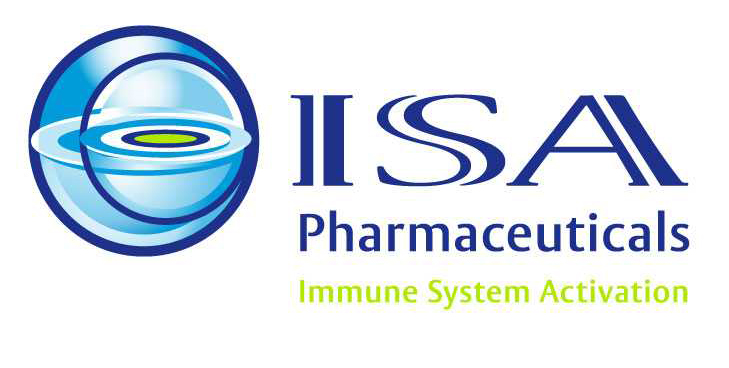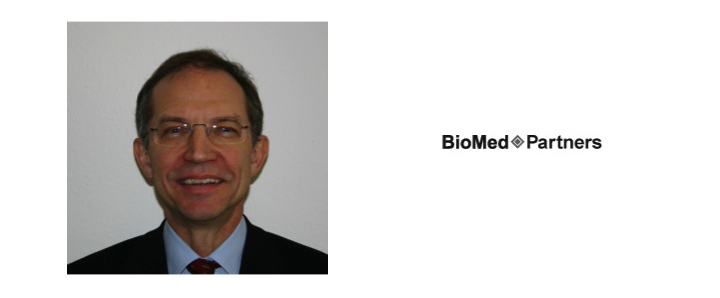Tag: funding
Company News: ISA Pharmaceuticals Secures EUR 8 Million Funding

ISA Pharmaceuticals B.V., a clinical-stage biopharmaceutical company focusing on rationally designed therapeutic vaccines against cancer and persistent viral infections, has today announced that it has raised EUR 8 million in a follow-on round from its existing investor base.
The proceeds will be used to fund a randomized Phase II clinical trial in cervical cancer with ISA’s lead program ISA-HPV, a therapeutic vaccine for pre-malignant diseases and cancers induced by human papilloma virus (HPV). Cervical cancer is the second most common cancer in women worldwide and is caused by HPV infection. The company has already demonstrated clinical efficacy of its HPV vaccine in a Phase II study in Vulvar Intraepithelial Neoplasia.
ISA’s vaccines are based on its proprietary synthetic long peptide (SLP®) vaccine platform. The company is currently advancing existing and new programs based on its SLP® vaccine platform in a number of cancers, including cervical carcinoma, as well as its groundbreaking proprietary toll-like receptor (TLR) ligand adjuvant technology.
akampion Meets… Dr. Markus Hosang, General Partner at BioMedPartners
Markus Hosang, General Partner at BioMedPartners, has a strong pharmaceutical and VC background. He was previously Venture Partner at MPM Capital. Prior to joining MPM in 2002, he was at Roche, where he served for nearly 20 years in several senior management positions in the Pharma R&D organization.
akampion: If you could give some advice to aspiring or very junior venture capital professionals, what would it be?
Markus Hosang: There are usually two approaches to becoming a venture capital professional. First, you can join as an Associate or Analyst pretty early on if you have a strong scientific background, combined with a business degree (MBA). The second route is gaining extensive management and executive expertise in big pharma or biotech companies and subsequently joining a VC firm as a Partner. In general, I believe that operational experience in pharma or biotech companies is very important if you want to succeed in the venture capital industry. Even Associates or Analysts should bring some years of industry experience, not just a strong scientific background.
When I was at Roche, I was fortunate to be part of an innovation-driven environment and management team of the company. Since then, I have always been attracted to pioneering industry trends – but I also had the chance to learn from failures.
akampion: So what are your investment criteria if you look at healthcare companies?
Markus Hosang: Data, science and patents have to be convincing. Equally important are growth perspectives and market environment. The third point, which is crucial and often overlooked, is the executive team – what are their strengths and weaknesses? Will they be able to deliver? In the past, I have often been disappointed by executives and founders with a pure academic background. On the other hand, if executives join a small company from big pharma, they need to prove that they can do without a huge corporate infrastructure. Will they be moving fast enough? But I also have to admit that I underestimated a few teams in the past.
akampion: What is the key difference between US and European companies?
Markus Hosang: In the US, there are clearly a lot more serial entrepreneurs who are very hands-on and pragmatic. There is a „done it before“ attitude. We don´t really have a serial entrepreneurial spirit in European healthcare yet.
akampion: What has changed in the healthcare industry over the past ten years?
Markus Hosang: The endpoints in biopharmaceutical drug development have definitely changed – not just at the FDA and EMA, but also in terms of reimbursement criteria. For investors, the emphasis has shifted even more to exit strategies and value inflection points. Exits happen earlier – often times, companies are factually being „leased“ by milestone-driven payments, which allow for staged acquisitions instead of buying a company as a whole.
akampion: What is your opinion on the current financing situation in Europe?
Markus Hosang: European private equity financings have been very generous in the past, but this has changed over the last couple of years. There is currently a shortage of funds in Europe, and as a result, there is a weeding out going on, which has even started to affect good companies. However, an excellent management team will source other funds and identify financing alternatives, such as grants. A good example here is Okairos in Italy.
akampion: At what stage do you invest in a company? And why did you choose to focus your investments on the Alpine region?
Markus Hosang: Before I consider an investment, the founders should have done their homework properly and also should have made some initial investments themselves. There must be a convincing business plan, maybe they have even won a business plan competition. The seed round must have completed successfully. Start-ups in Switzerland often hire mentors or advisors with a pharma background, which is a great advantage. The Alpine region is a very fertile ground. It has a very strong pharma industry and infrastructure, there are excellent universities and research institutions, and everything is located in the vicinity, easy to reach in a few hours. The latter point is particularly important for us as very active and involved investors, as it permits us to see our companies without too much (travel) efforts and on short notice, if required.
akampion: What motivates and inspires you in your daily work?
Markus Hosang: I very much enjoy applying my professional skills to a continuously broadening scope of activities. And I am thrilled to generate value and to keep track of a quickly developing sector, and perhaps, albeit indirectly, contribute to the solution of a still unmet medical need. Last not least, I love the collaboration and interaction between various teams and boards that I am on. Therefore, transparency and fairness are extremely important in my work.
Food for Thought: Germany Lags Behind in Biotech
These days, everybody has his own opinion about the quality and prospects of the German biotechnology industry. It even seems to be difficult to determine if biotech funding in Germany has increased, remained stable – or dramatically decreased, as recently published by the German industry organization BIO Deutschland.
If you look at key intangibles, such as the extent of media coverage on the biotech sector and the attractiveness of German biotech companies for investment banks, it is obvious that German biotech is not on the rise.
An article by Roland Benedikter and James Giordano published by German newspaper Die Welt suggests a bleak scenario if Germany is not willing to accelerate and intensify its biotech efforts. According to the authors, biotechnology is not only the most important success factor in future economic development – it will also change the global power balance: “the one who controls the chips also controls the game”. Asia and the Far East are quickly catching up in the biotech space, while the U.S. and other European countries continue to heavily invest into the sector. Therefore, Germany might gradually evolve from an export-oriented country to an import-oriented one – unless there will be a fundamental change of mind in the German government and society.
Almost two decades ago, the German biotech industry started out with the clear goal to narrow the gap to the U.S., where biotechnological markets and ventures were (and still are) much more mature. Since then, the German biotech sector has successfully produced a number of promising companies, innovations and products. However, the most attractive and advanced companies and technologies have been acquired by foreign, mostly U.S.-based, companies. Amgen´s take-over of Micromet, an oncology company with academic roots at the University of Munich, is the most recent example.
Therefore, lack of innovation is clearly not the problem. And lack of funding is only the symptom of an underlying German (and partly European) biotech phenomenon – wide-spread risk aversion combined with limited availability of true executive leadership qualities. Moreover, the public sentiment towards biotechnological innovation remains skeptical or even hostile and is mirrored by a “we don’t need this”-attitude of politicians and even Germany’s healthcare system, in which IQWiG, a decision body responsible for drug reimbursement, does its best to belittle innovative medicines.
It may not surprise you that an often-heard German term, “technologiefeindlich” (i.e. a negative attitude towards technological innovation), lacks any English equivalents.

